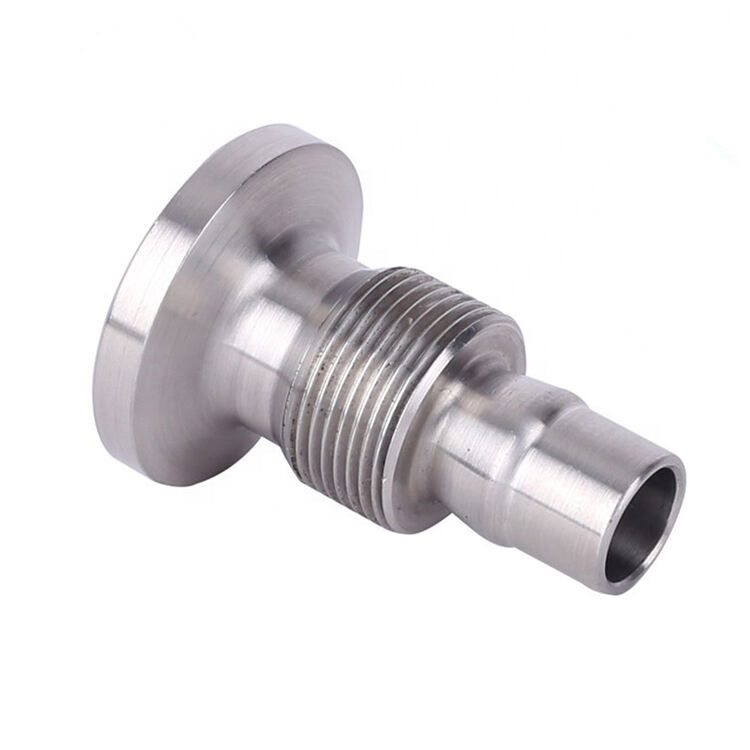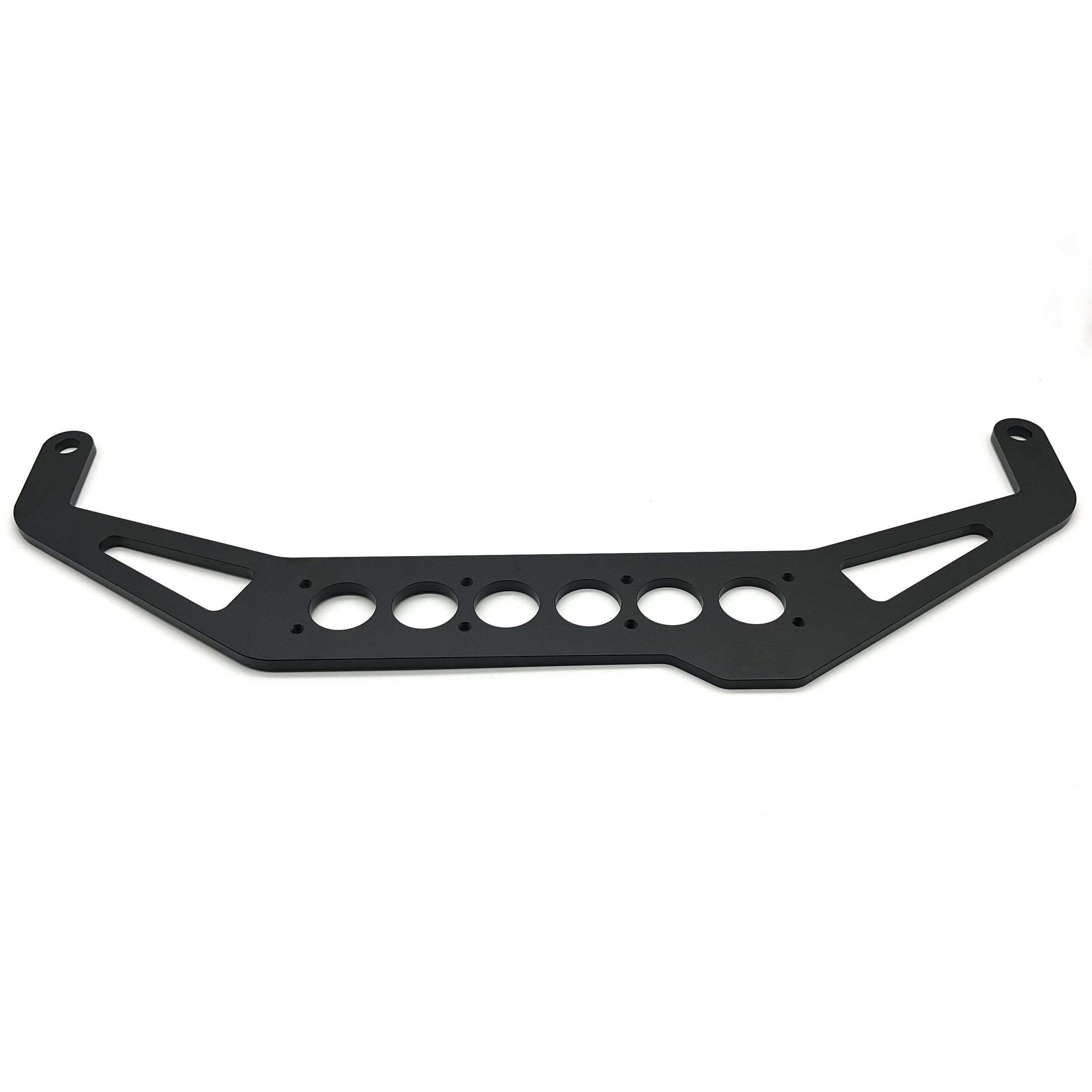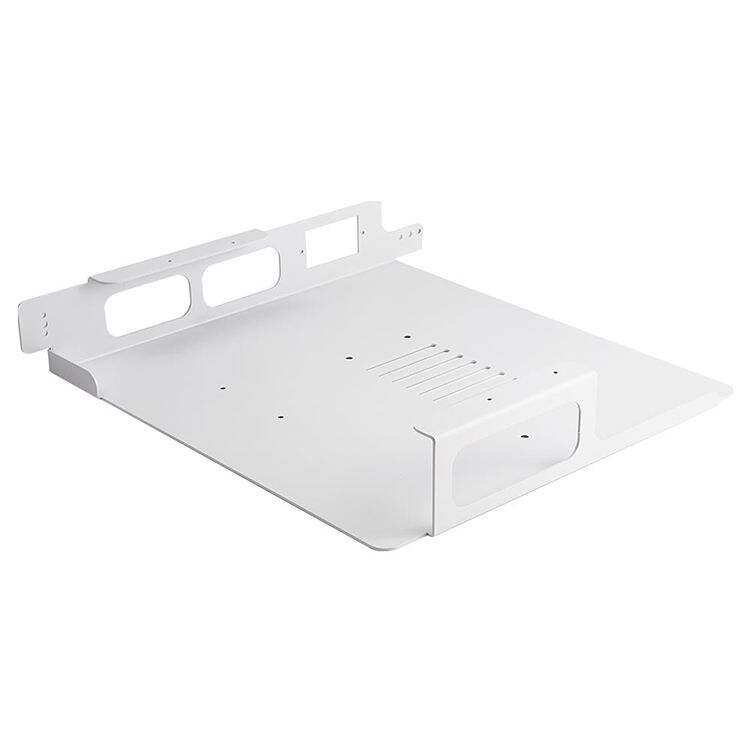Feb 13,2025
0
CNC turned components are produced using computer numerical control (CNC) lathes, which are capable of creating precise parts from various materials. These components are shaped by rotating the material while a cutting tool is positioned against it, enabling rapid prototyping and the manufacture of complex shapes with high precision. CNC machining services have become a cornerstone in industries requiring meticulous detail, such as aerospace and medical sectors.
High-durability CNC turned components owe their robust qualities to advanced engineering and the meticulous selection of materials like stainless steel and titanium. These materials are chosen for their strength, resistance to wear and tear, and ability to endure harsh environments. The integration of these advanced materials and precision engineering ensures the longevity and reliability of CNC machine parts in demanding applications.
The benefits of using high-durability CNC turned components are manifold. They include superior precision, which minimizes material waste and reduces the risk of flaws during production. Additionally, the ability to achieve complex geometries enhances both the functionality and durability of the final product. These advantages make CNC machining a pivotal technology in producing components that need to meet stringent performance criteria.
High-durability CNC turned components play a crucial role in several key industries, including automotive, aerospace, and medical equipment. In the automotive sector, these components are essential for manufacturing critical engine parts and precision gears. The aerospace industry relies on them for crafting complex components vital to aircraft performance and safety. In medical equipment, CNC components ensure precision and reliability in devices such as surgical instruments and diagnostic machines. Recent statistics underscore the demand growth, with the global CNC machine parts market expected to reach a value of USD 25 billion by 2026, growing at a compound annual growth rate of approximately 5.5%. This expansion is driven by the consistent technological advancements in CNC machining service capabilities.
Several case studies highlight the tangible benefits of implementing high-durability components. For instance, a leading aerospace company integrated these components, resulting in a 20% improvement in engine efficiency and a notable decrease in maintenance downtime. Similarly, a medical device manufacturer achieved a 15% reduction in production costs and enhanced product reliability by substituting conventional parts with CNC turned components. These examples vividly illustrate how precision engineering can lead to significant operational advantages in various industrial applications. Each case demonstrates the capacity of CNC machining services to boost performance and provide reliable solutions in demanding environments.
The precision engineering process in CNC turning involves several critical steps that ensure high-quality outcomes. It begins with the design phase, where computer-aided design (CAD) software is used to create a detailed 3D model of the component. This model is then translated into computer-aided manufacturing (CAM) instructions, which guide the CNC turning machinery. This automation allows for high-speed production with tight tolerances, reducing human error and ensuring consistency in each part manufactured. Each step in this machining process contributes to the overall accuracy and efficiency, integral to industries requiring precise components.
Precision in manufacturing is crucial, particularly within CNC machining services, as even minimal errors can severely impact the life and functionality of components. According to engineering standards, tolerances in precision machining can be as tight as ±0.0001 inches, highlighting the necessity of precision. This level of accuracy ensures that components meet stringent specification requirements and function correctly in their operational environments. For example, in high-stakes fields such as aerospace or medical equipment production, the reliability and durability brought by precision machining are non-negotiable, often determining the success of the entire operation.
The realm of CNC machining introduces remarkable Products that find utility in diverse industrial sectors, underscoring the blend of innovation and functionality. First, we spotlight Advanced Custom Steel CNC Turned Components, embodiment of precision and resilience essential for heavy-duty apparatus and construction applications. Their use in engines and machinery ensures high wear resistance and exceptional performance under extreme conditions. Such components are invaluable in aerospace and heavy machinery sectors, where they support robustness and precision.

Next, Custom Anodized Aluminum Auto Parts focus on weight reduction and corrosion resistance, which are pivotal in automotive industries. Such parts offer a lightweight yet sturdy alternative, enhancing vehicle performance and longevity. The advanced anodization process not only fortifies these components but also gives them aesthetic appeal, making them ideal for a range of automotive applications—from suspension systems to interior trim pieces—where endurance and style converge.

Lastly, Professional OEM Sheet Metal Fabrication offers a holistic approach to manufacturing needs by complementing CNC turned parts. Incorporating processes such as laser cutting, CNC bending, and welding, this service provides end-to-end solutions. These services ensure high precision and durability, thereby supporting industries that demand both high-quality standalone and integrated parts. From electronic enclosures to food processing equipment, the synergy between CNC turned components and sheet metal fabrication signifies a leap toward comprehensive manufacturing excellence.

Selecting the appropriate CNC machining service is crucial for producing high-durability components. Consider several key factors when choosing a provider, such as the certification of the service, which ensures adherence to industry standards and quality. The technology used is another critical criterion; modern and advanced CNC machines ensure precision and efficiency. Additionally, customer reviews offer insights into the provider’s reliability and the experiences of other clients, helping you gauge service quality better.
To evaluate potential CNC machining providers, experts offer practical tips. Firstly, assess their experience with specific materials you require, as this impacts the quality and precision of the final product. Providers with expertise in materials like steel, aluminum, or exotic alloys can cater to your specific needs. Additionally, check their quality control measures, ensuring they have robust systems for defect reduction and consistent output. This comprehensive evaluation can help in making an informed decision, steering you towards a provider capable of delivering high-quality and durable components.
The future of CNC machining in industry is bright, with emerging trends enhancing production efficiency and sustainability. Advancements in automation and artificial intelligence are becoming integral to CNC machining, enabling smarter, faster, and more precise manufacturing processes. Automation reduces human error and maintains consistency across production runs, while AI can optimize machine operations in real-time. These technologies are set to significantly increase productivity and reduce lead times, which is crucial in today's competitive market.
In addition to technological advancements, sustainability in CNC machining is gaining traction. Industries are increasingly exploring eco-friendly materials and waste reduction practices for a greener future. For instance, the automotive sector is prioritizing reusable materials as part of their sustainability initiatives. Many CNC machining services are adopting practices to minimize waste, such as optimizing material use and energy efficiency in production. By incorporating sustainable approaches, companies can reduce their carbon footprint and contribute positively to environmental conservation efforts. This dual focus on innovation and sustainability signals a promising future for CNC machining.